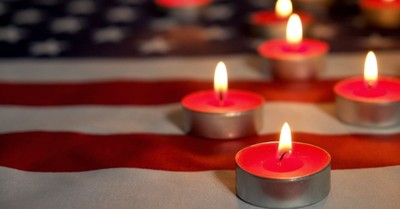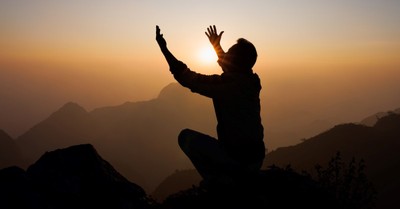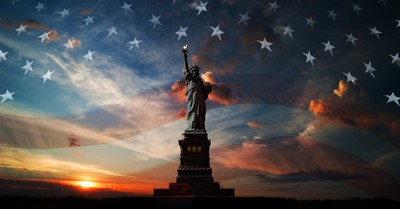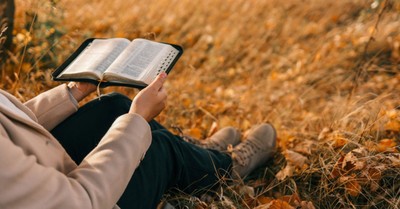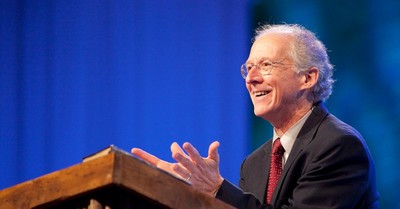The Urgency and Power of 'Social Solidarity'
Here’s a sign of the times: an airport is offering passengers who really miss air travel a trip to nowhere.
Taipei’s Songshan airport made the offer earlier this month, receiving about seven thousand applications. Sixty people were chosen for the half-day “trips” that will continue over the next couple of weeks.
Those selected for the phony flights receive boarding passes and go through the typical security process as if they are traveling internationally. They gather at the gate, then board an Airbus A330 of Taiwan’s largest carrier. However, the plane goes nowhere. After a while, the lucky passengers return to the same gate they left.
In a similar vein, Walmart is turning 160 of its parking lots into drive-in movie theaters to offer contactless film premieres. Besides movies, the family-friendly nights will feature special appearances from filmmakers and celebrities.
Customers will order concessions online for curbside pickup or delivery to their vehicles. The movies will begin next month and run until October.
"Physical distancing and social solidarity"
These are just two examples of the many ways people are adjusting to the pandemic. From remote officing to online shopping to sports without fans, many are doing their best to make the best of these unprecedented days.
Here’s another way to respond.
Dr. Barbara Lee Fredrickson is a psychology professor and head of the Positive Emotions and Psychophysiology Lab at the University of North Carolina. She and her team surveyed six hundred Americans to ask about their daily activities and correlate them with the degree to which they experienced negative or positive emotions.
Unsurprisingly, they found that people who spent time passively scrolling social media or interacting with people only through chat or text were most likely to report negative emotions. By contrast, these activities were more likely to be associated with positive emotions:
- Exercise
- Self-care (such as participating in hobbies or relaxing)
- Engaging in spiritual activities (prayer or meditation)
- Interacting with other people, especially via video or face-to-face interactions
- Going out of their way to help other people.
In light of her team’s results, Dr. Fredrickson encourages us to change our response to others during the pandemic from “social distancing” to “physical distancing and social solidarity.”
"A great multitude that no one could number"
This week, we’re claiming Psalm 33:12, “Blessed is the nation whose God is the Lord.” As we noted yesterday, to make our God “the Lord” is to make him our King and Master at the start of the day and all through the day.
Note that this promise is directed to the “nation” who makes the Lord their God. This word in the Hebrew refers to an entire people group and is often used to describe the Gentiles.
Here we learn the importance to God of the collective, the larger body of his people. He intends his blessing to be experienced by individuals in community who practice the “social solidarity” that Dr. Fredrickson urges.
We find this theme across the New Testament as well. The church is pictured as a vine with many branches (John 15:1-5), a body with many parts (1 Corinthians 12:12-27), a “great multitude that no one could number” (Revelation 7:9).
Even the apostle Paul—the greatest theologian, evangelist, and missionary in history—knew that he needed the help of others. He often asked those who read his letters to pray for him (cf. Romans 15:30-32; Ephesians 6:18-20; Colossians 4:3; 1 Thessalonians 5:25; 2 Thessalonians 3:1-2). He served God alongside a ministry team that began with Barnabas (Acts 13:2-3) and extended to a multitude of kingdom partners (cf. Romans 16:1-15).
The apostle knew that “social solidarity” is not just an emotional priority but a kingdom principle.
The privilege of "social solidarity"
As the airport in Taiwan and drive-in movies on Walmart parking lots demonstrate, we are more creative and proactive when we work together than when we work alone. As Dr. Fredrickson’s research shows, we are happier and more resilient when we face the pandemic and other challenges with others in community.
To be a people God can bless, we must be people who seek to bless each other.
Here’s my question: Who is helping you make the Lord your God? If Paul needed people to pray for him, don’t you? If he needed partners in kingdom service, don’t you?
In whom are you confiding your needs and fears? With whom are you practicing “social solidarity”?
Now let’s ask it the other way: Who is depending on you? For whom are you praying? Whose needs are you meeting? Whose service are you supporting?
To practice “social solidarity,” let’s practice “spiritual solidarity” today, to the glory of God.
Publication date: July 7, 2020
Photo courtesy: Tumisu/Pixabay
Jim Denison, PhD, is a cultural theologian and the founder and CEO of Denison Ministries. Denison Ministries includes DenisonForum.org, First15.org, ChristianParenting.org, and FoundationsWithJanet.org. Jim speaks biblically into significant cultural issues at Denison Forum. He is the chief author of The Daily Article and has written more than 30 books, including The Coming Tsunami, the Biblical Insight to Tough Questions series, and The Fifth Great Awakening.
The views expressed in this commentary do not necessarily reflect those of CrosswalkHeadlines.
For more from the Denison Forum, please visit www.denisonforum.org.
The Daily Article Podcast is Here!








